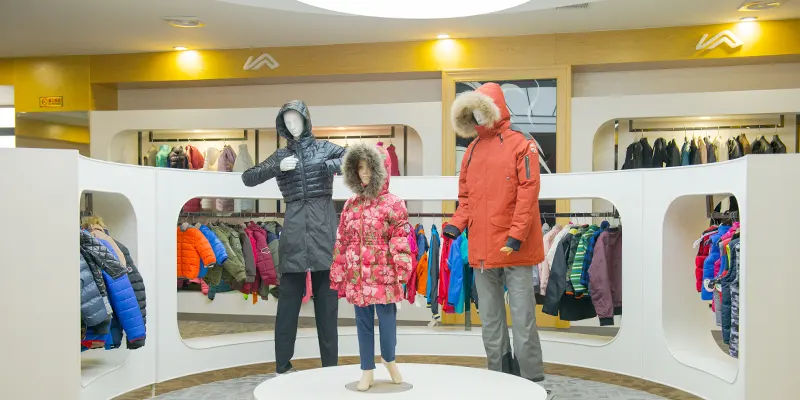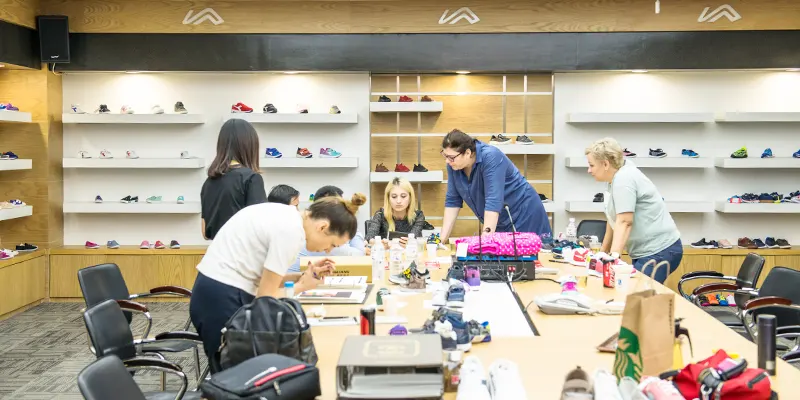Exploring Different Types of Children's Shoe Styles: A Comprehensive Guide
Time:
17 Feb,2025
Exploring Different Types of Children's Shoe Styles: A Comprehensive Guide
Table of Contents
1. Understanding the Importance of Proper Footwear for Children
2. Key Factors to Consider When Choosing Children's Shoes
3. Different Types of Children's Shoe Styles
3.1 Sneakers: The All-Rounder
3.2 Sandals: Perfect for Warm Weather
3.3 Boots: Stylish and Functional
3.4 Dress Shoes: For Special Occasions
3.5 Water Shoes: Essential for Pool Days
4. The Latest Trends in Children's Footwear
5. How to Measure Your Child's Feet for the Perfect Fit
6. Caring for Your Child's Shoes: Maintenance Tips
7. Frequently Asked Questions About Children's Shoes
8. Conclusion: Making Informed Choices for Your Child's Shoe Collection
1. Understanding the Importance of Proper Footwear for Children
Choosing the right shoes for children goes beyond mere aesthetics; it plays a crucial role in their overall health and development. Children's feet are still growing, and wearing the correct footwear can significantly impact their posture, balance, and comfort. Poorly-fitted shoes can lead to complications such as blisters, calluses, and even long-term issues like flat feet or misalignment of the bones.
Good footwear supports healthy foot development and provides the stability necessary for children to explore the world around them. As parents, we must prioritize comfort without sacrificing style.
2. Key Factors to Consider When Choosing Children's Shoes
When selecting children's shoes, several factors come into play to ensure the perfect fit and function:
2.1 Size and Fit
Children's feet grow rapidly, so measuring their feet regularly is essential. Ensure there's enough space to wiggle toes and that the heel is secure without slipping.
2.2 Material
Opt for breathable materials such as leather or canvas, which help prevent moisture buildup and allow the feet to breathe.
2.3 Flexibility
Shoes should offer enough flexibility to allow natural foot movement. A rigid sole can hinder a child's ability to walk or run comfortably.
2.4 Support
Arch support is vital for children's growing feet. Look for shoes that provide adequate support and cushioning, especially for active children.
2.5 Style
While comfort and support are paramount, children's shoes should also reflect their personality. A wide array of colors and designs can make shoe shopping an exciting experience for both kids and parents.
3. Different Types of Children's Shoe Styles
Understanding the various types of children's shoes available can help you make informed decisions based on your child's activities, preferences, and needs.
3.1 Sneakers: The All-Rounder
Sneakers are arguably the most versatile type of children's footwear. They are designed for comfort and durability, making them suitable for various activities, from playtime to casual outings. When selecting sneakers, look for options with:
- **Breathable materials** to keep feet dry.
- **Cushioned insoles** for added comfort during prolonged wear.
- **Non-slip soles** to ensure safety while running and playing.
Popular brands often incorporate fun designs and colors, making sneakers a hit among kids.
3.2 Sandals: Perfect for Warm Weather
As temperatures rise, sandals become a go-to choice for parents. They provide ventilation and comfort, but it’s crucial to choose styles that offer:
- **Secure straps** to prevent slipping off.
- **Arch support** to maintain foot health.
- **Durable soles** to withstand the wear and tear of outdoor activities.
From flip-flops to sporty sandals, there’s a design for every child's taste.
3.3 Boots: Stylish and Functional
Boots offer a blend of style and functionality, making them perfect for colder months or rugged terrains. When selecting boots for children, consider:
- **Insulation** to keep feet warm during winter.
- **Waterproof materials** for wet conditions.
- **Easy-to-use closures** like zippers or velcro for independent wear.
Whether they're for fashion or function, boots can elevate any outfit while providing the necessary protection.
3.4 Dress Shoes: For Special Occasions
Dress shoes are essential for formal events, family gatherings, or school functions. Look for:
- **Quality materials** that balance style and comfort.
- **Cushioned interiors** to prevent discomfort during extended wear.
- **Classic designs** that can be paired with various outfits.
Choosing the right dress shoes can help your child feel confident and stylish during special occasions.
3.5 Water Shoes: Essential for Pool Days
Water shoes are indispensable for summer activities, whether at the pool, beach, or lake. They provide:
- **Quick-drying materials** to keep feet comfortable.
- **Slip-resistant soles** for safety on wet surfaces.
- **Lightweight designs** for easy wear.
With an array of vibrant designs, water shoes can also add a splash of fun to any summer outing.
4. The Latest Trends in Children's Footwear
The world of children’s footwear is continually evolving, with new trends emerging each season. Here are a few notable trends to keep an eye on:
4.1 Eco-Friendly Materials
Parents are increasingly looking for sustainable options. Many brands now offer shoes made from recycled or eco-friendly materials, allowing parents to make environmentally conscious choices.
4.2 Customizable Shoes
Some brands allow kids to personalize their shoes with interchangeable elements, from patches to colors, catering to individual tastes and preferences.
4.3 Bold Colors and Patterns
Vibrant colors and unique patterns remain popular. From neon hues to animal prints, children’s shoes have become a canvas for creativity and self-expression.
4.4 Lightweight and Minimalist Designs
As parents prioritize comfort, lightweight and minimalist designs are gaining popularity. These styles reduce the weight on a child’s feet, enhancing their ability to move freely.
5. How to Measure Your Child's Feet for the Perfect Fit
Ensuring that your child's shoes fit correctly begins with accurate measurements. Follow these steps for accurate sizing:
5.1 Gather Your Supplies
You'll need a ruler or measuring tape, paper, and a pen to track measurements.
5.2 Measure While Standing
Have your child stand on a piece of paper and trace their foot. Measure from the heel to the longest toe for accurate length.
5.3 Account for Width
Measure the width at the widest part of the foot to ensure a proper fit.
5.4 Compare to Size Charts
Refer to the specific brand's size chart, as sizing can vary between manufacturers.
Regularly measuring your child's feet every few months ensures their shoes remain comfortable and supportive.
6. Caring for Your Child's Shoes: Maintenance Tips
Proper care can extend the life of children's shoes, keeping them in good condition and ensuring comfort. Here are some maintenance tips:
6.1 Regular Cleaning
Wipe down shoes regularly with a damp cloth. For sneakers and sandals, use mild soap to remove dirt and stains.
6.2 Dry Properly
Avoid placing shoes near direct heat sources; allow them to air dry to prevent damage.
6.3 Rotate Shoes
Encourage your child to rotate their shoes to give each pair a chance to rest and recover from wear.
6.4 Inspect for Damage
Regularly check shoes for wear and tear. Replace them if the soles are significantly worn or the shoes no longer provide support.
7. Frequently Asked Questions About Children's Shoes
7.1 How often should I replace my child's shoes?
Children's shoes should be replaced every 3-6 months, depending on growth and wear.
7.2 What size should I buy if my child’s foot is between sizes?
If your child’s foot is between sizes, it’s best to opt for the larger size to allow for growth.
7.3 Are there specific shoes for different activities?
Yes, different activities require specific shoe types—sneakers for sports, sandals for casual outings, and dress shoes for formal events.
7.4 How can I tell if my child's shoes fit properly?
The shoes should fit snugly without pinching. There should be a thumb's width of space between the longest toe and the front of the shoe.
7.5 What features should I look for in a shoe for toddlers?
For toddlers, look for flexible soles, secure closures, and shoes that are easy to put on and take off.
8. Conclusion: Making Informed Choices for Your Child's Shoe Collection
In conclusion, understanding the different types of children's shoe styles is fundamental to ensuring your child's comfort, health, and happiness. By considering fit, material, and style, you can make informed decisions that cater to your child's unique needs. Embrace the vibrant world of children's footwear and help your little ones step out in confidence and style. Whether it’s for everyday adventures or special occasions, the right shoes can make all the difference.
Share to









